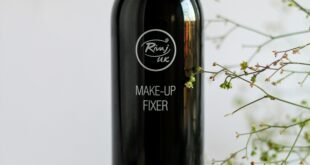For all its syrupy sweetness, honey is one of nature’s most hard-working creations; rich with antioxidants, it is both a powerful humectant, meaning it’s able to draw and seal in moisture, and packed with potent antibacterial compounds. Perhaps unsurprisingly, then, it has long been prized for its curative and beautifying properties: It’s listed in recipes for healing ointments that were carved into clay tablets by the ancient Sumerians around 2000 B.C. (and later discovered in what is now Iraq). Cleopatra is said to have bathed regularly in milk infused with the golden liquid. And women in Ming dynasty-era China used it to clear blemishes.
In recent years, despite scientific advancements in skin care, honey has not only maintained but increased its prominence in our regimens. Claire Marin, a beekeeper and the owner of Catskill Provisions, a honey-focused food and spirits company based in upstate New York, has found that her customers often use the brand’s two seasonal varieties of the substance — both harvested in the Catskills, the darker fall batch flavored with maple and chestnut from the bees’ diets, and the spring version distinguished by lighter notes of clover and apple — as they would a moisturizer, applying it to their hands and face in the dry months of winter. (It’s a trick Marin learned herself while growing up in Spain, where, she says, “honey is a part of everyday life.”)
And as the beauty industry shifts further toward natural and environmentally minded practices, hair and skin-care brands are also increasingly turning to honey as an effective regenerative ingredient. “Bees are at the core of who we are and what we do,” says Negin Mirsalehi, who founded the Netherlands-based line Gisou in 2013. Her father, a fifth-generation apiarist, started the family’s bee garden, a large collection of hives, in Almere in the 1970s. “Growing up,” Mirsalehi says, “we used our harvest for everything from healing our cuts and scrapes to soothing our sore throats and nourishing our hair.” Today, it supplies all the honey for Gisou’s formulas, including its Honey-Infused Hair Oil ($87), which blends the ingredient with coconut and sweet almond oil, and was adapted from Mirsalehi’s mother’s recipe.
When it comes to skin care, honey’s purported benefits are equally impressive. Last year, new findings about the substance’s capacity for treating wounds inspired the French cosmetics company Guerlain to launch its Bee Lab, a platform dedicated to researching the insect as well as the biological properties of honey. Among the results of this initiative is the Abeille Royale Advanced Youth Watery Oil ($135), a serum derived from 95 percent natural ingredients — including black bee honey from Ouessant, France, and royal jelly, a nutrient-rich gelatinous substance produced by worker bees — that is intended to accelerate moisturization and skin repair.
The Bee Lab follows strict harvesting guidelines that ensure that the at-risk species is as protected as possible, as does Mahoni, a London-based beauty and wellness brand founded by Viola Bloch in 2020. Bloch, who left a career in media to start her company, was inspired by the healing properties of manuka honey, a rare variety that contains uniquely high levels of the antibacterial compound methylglyoxal and is produced exclusively by bees that pollinate the manuka tree, a fragrant shrub that grows only in New Zealand and parts of Australia. The brand’s Skin Remedy ($59), a salve comprising pure manuka honey, is meant to be used on blemishes but can also be applied to lips to seal in moisture. Manuka honey can be found, too, in the California-based skin-care brand Eighth Day’s Skin Regenerative Serum ($325), in which it is included for its skin-healing and immunity-boosting effects. And if the manuka tree itself appeals more than a bee product, the Vancouver-based natural skin-care brand Okoko Cosmétiques’s clarifying L’Elixir de Manuka ($101) serum contains an extract obtained directly from the plant’s leaves.
Many of the most luxurious honey-infused products are also intended to invoke the slow, ritualistic nature of beekeeping itself. Both Sisley-Paris’s Velvet Sleeping Mask ($152) and Mary Louise Cosmetics’s Turmeric and Honey Face Mask ($38) — the former made with thyme honey, known for its skin-soothing properties, the latter with organic raw honey and inflammation-reducing turmeric — are meant to be applied a few times a week, during a quiet moment of self-care. The German brand Augustinus Bader, meanwhile, has responded to a ritual that feels especially of our time — that of frequent hand washing. Its revitalizing Hand Treatment ($53), introduced last year, uses organic linden honey from Bulgaria to soften skin and protect its natural barrier, making hands more resilient to the drying effects of regular scrubbing. In trying times, we might even see honey itself as a symbol of resilience, suggests Marin, who in recent years has witnessed the loss of hives because of increasingly extreme weather events. In response to our rapidly changing world, “bees show an incredible amount of adaptation,” she says. “One thing that I always return to is that nature is hope.”
 fashion rec fashion wanted
fashion rec fashion wanted



